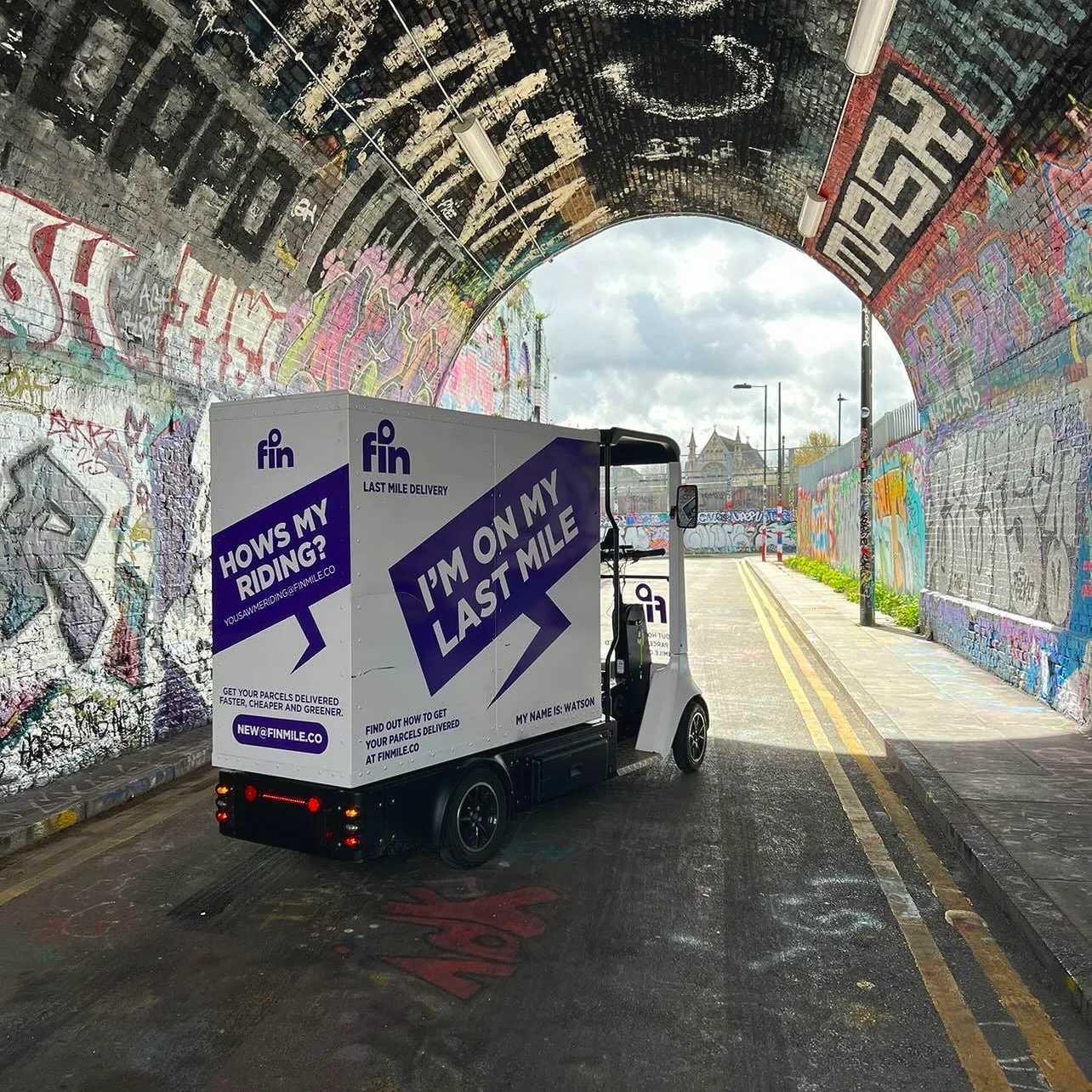The growth of e-commerce has led to a surge in last mile delivery needs, putting strain on city centres in terms of traffic congestion and pollution. The last mile delivery, which refers to the final step of transporting goods to the consumer’s doorstep, is often the most expensive and environmentally taxing part of the supply chain. To tackle these challenges, Fernhay is championing sustainable last mile delivery with solutions like the eQuad, an innovative vehicle that aims to revolutionise city logistics by reducing emissions and enhancing urban mobility.
The Environmental Impact of Traditional Last Mile Delivery
Conventional last mile delivery often relies on diesel-fueled vehicles, contributing significantly to air pollution and carbon emissions. With the increase in online shopping, especially in densely populated areas, the environmental impact is growing. Delivery trucks and vans clog up streets, leading to higher levels of carbon dioxide (CO2) emissions and worsening air quality. As cities strive to meet climate goals and improve urban living conditions, it’s evident that a shift towards sustainable last mile delivery is necessary.
What is the eQuad?
The eQuad by Fernhay is a cutting-edge, pedal-assisted electric vehicle designed specifically for urban deliveries. It combines the agility of a bicycle with the carrying capacity of a small van, making it an ideal solution for congested city streets where traditional vehicles struggle. The eQuad’s compact size allows it to navigate through narrow roads and cycle lanes, reducing delivery times and minimizing the need for large vehicles in city centres.
Key features of the eQuad include:
- Electric Assist: The pedal-assist electric motor supports delivery riders, making it easier to carry heavy loads without fatigue.
- Zero Emissions: As an electric vehicle, the eQuad produces no tailpipe emissions, significantly reducing the carbon footprint of each delivery.
- Compact Design: With its small footprint, the eQuad can access areas that are off-limits to traditional delivery vans, such as pedestrian zones.
How the eQuad Supports Cleaner City Centres
Fernhay directly addresses the environmental issues posed by traditional last mile delivery. By replacing diesel-fueled vans with eco-friendly alternatives, the eQuad helps reduce air pollution, lower greenhouse gas emissions, and ease traffic congestion. These changes contribute to creating cleaner, more livable city centres.
- Reduction in Air Pollution
The transition from diesel vehicles to electric options like the eQuad drastically cuts down the amount of harmful emissions released into the air. This is particularly important in urban areas where air quality is a growing concern. By using eQuads for deliveries, companies can meet environmental regulations and support local clean air initiatives.
- Easing Traffic Congestion
Unlike traditional delivery vans, the eQuad can utilize bike lanes and smaller roads, helping to alleviate traffic on main streets. Its compact design enables efficient navigation through congested areas, ensuring that deliveries are not only eco-friendly but also quicker. This can significantly reduce the overall number of vehicles on the road, making city centres less congested and more pedestrian-friendly.
- Enhancing Urban Mobility
The ability to access restricted areas, such as pedestrian zones and low-emission zones, makes it a versatile solution for cities implementing stricter vehicle regulations. As cities move towards banning diesel vehicles in certain areas, the eQuad provides a sustainable alternative that keeps goods moving without compromising air quality or urban mobility.
The Role of Fernhay in Promoting Sustainable Logistics
Fernhay has positioned itself as a leader in sustainable logistics, pushing for innovative solutions that reduce the environmental impact of urban delivery. The development of the eQuad aligns with Fernhay’s mission to support cities in their transition towards greener transportation systems. The company’s commitment to sustainability is evident in its continued investment in research and development, ensuring that the eQuad and other solutions remain at the forefront of eco-friendly logistics.
Real-World Applications and Success Stories
Several cities across Europe and North America have already integrated Fernhay’s eQuad into their logistics networks with positive results. In London, for instance, logistics companies have adopted a fleet for deliveries within the city centre, where emissions restrictions are strictest. This has not only helped meet regulatory requirements but also improved delivery efficiency by avoiding traffic congestion.
In Paris, where space is at a premium, the eQuad’s compact size allows it to operate in areas where traditional vehicles cannot, ensuring that businesses can continue to deliver goods quickly and sustainably. These examples highlight the eQuad’s potential to be a game-changer for urban logistics worldwide.
Overcoming Challenges in the Transition to Sustainable Last Mile Delivery
While the shift towards sustainable delivery is beneficial, it does come with challenges. One of the main barriers is the initial cost of adopting new technology, such as electric vehicles and the infrastructure needed to support them. Fernhay addresses these challenges by designing the eQuad to be cost-effective and easy to integrate into existing logistics operations. Its pedal-assist design reduces the need for expensive charging infrastructure, as it can be charged from a standard power outlet.
Furthermore, training staff to use new vehicles and systems can be a hurdle. However, the eQuad’s user-friendly design and intuitive controls minimize the learning curve for riders, making it easier for logistics companies to adopt the technology without significant disruptions.
Conclusion
The future of city logistics lies in sustainable last mile delivery, and the eQuad is a key player in this transformation. By addressing the environmental and logistical challenges associated with traditional delivery methods, Fernhay’s eQuad supports cleaner, more efficient city centres. As urban areas continue to grow and prioritize environmental sustainability, solutions like the eQuad will become essential for maintaining the balance between consumer demands and the need for cleaner air.
Fernhay remains committed to leading the way in sustainable urban logistics, continually innovating to support cities worldwide in their quest for greener futures.

